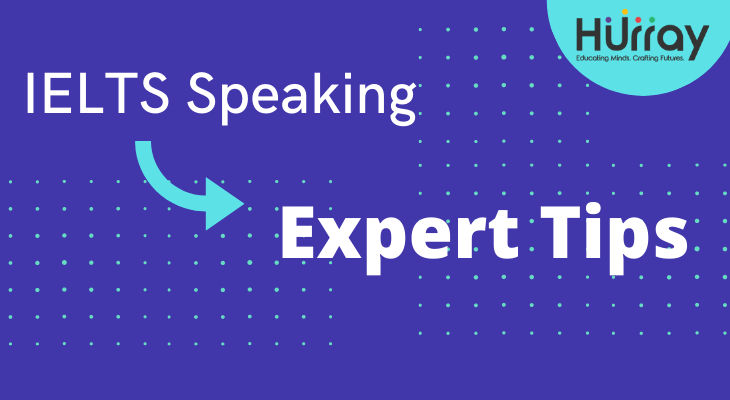As you may already know, acing the IELTS Speaking Test is one of the most challenging parts of the IELTS exam for many. But, with our tips, you will learn exactly how to handle it and get your desired band score.
Read on to learn more about our tips for IELTS Speaking.
About the Test
Before we get started, here is the basic information you should know.
The test is designed to evaluate your ability to speak and communicate in English.
While the Reading, Listening, and Writing parts of the test are conducted in one session, the Speaking test is conducted separately. In this test, you will be interacting with an examiner in person. The test may take place anytime within a week before or after the main test. This is the case for both Computer-based and Paper-based tests.
The test usually lasts for a total of about 11 to 14 minutes – no shorter and no longer.
The test is recorded, which means that you can ask for a re-evaluation if the need arises.
Do you know how you will be scored for IELTS Speaking?
You will be scored on the following criteria. Each one carries about 25% of your score.
-
Fluency and Cohesion – how well you are able to use language to explain your thoughts and ideas in an organised way
-
Grammar – using language in a grammatically correct way, especially sentence construction and tenses
-
Vocabulary – using a broad range of words to explain your thoughts and ideas
-
Pronunciation – using the correct pronunciation of words (either British/American)
You can watch the video here to know how few words are mispronounced and correct yourself for better scores in speaking.
You need to know the Structure of the Test
Once you enter the test room, the introduction session will begin. Here, the examiner will greet you and ask you a few questions, to verify your identity. You will also be asked to show your passport.
After this, the main part of the test will begin. It is divided into 3 segments.
-
question and answer session – 4-5 minutes
-
talking on a topic – 1-2 minutes, with 1 minute of rounding-off questions
-
discussion – 4-5 minutes
We will deal with each of these segments in our next few posts.
But first, these are some of our general tips that can help you start on the right foot!
General Tips and Techniques
1. How to handle the introduction session
While your first interaction with the examiner will not be part of the official score, it is an opportunity to make a good first impression! The examiner will greet you, introduce him/herself, and ask you your name and where you live, and you will have to speak accordingly.
The most important tips are:
-
greet the examiner with a smile and a “Good morning” or “Good afternoon”
-
ensure that you say your name and hometown exactly as it is written in your passport/proof of ID
-
be clear when you are saying your name
-
do not give any extra information regarding your hometown – just the name of the town, and at most, the name of the state, are enough
2. The Speaking test is in an Informal setting
Remember, all this session is meant to do is test your ability to converse comfortably in English. You do not have to act or speak very formally, as you would in a college interview. Just listen to what the examiner is saying, and respond clearly.
3. Test of language, not knowledge
In this test, your ability to use language is much more important than your knowledge of various topics. The examiner will give you higher scores if you are able to speak at length even without bringing in facts; and will give you lower scores if you can only utter a sentence or two, even if those sentences contain interesting facts.
Here are some useful tips:
-
connect the topic/question to your personal experiences – you will be able to speak at greater length when you do so.
-
do not waste a lot of time trying to think about facts related to the topic – even if you do not know anything about the topic, you can be honest about it and then speak about something closely related e.g. If the examiner asks you a question about “your pet”, you can say, “I do not have any pets of my own, but I do love animals, especially dogs. I have a friend who has a Labrador pup, and I love him like he’s my own pet.”
-
try to stick to the topic – while it’s okay for you to connect other ideas when speaking, try to make sure that you stick to the broad topic the examiner gives you. This is important for maintaining coherence i.e. what you say needs to make sense.
-
avoid telling a lie – while you won’t lose points if you lie (the examiner doesn’t care about this), it is more difficult trying to come up with things to say when you’re lying. Stick to what you actually know.
4. Important grammar
Good grammar is always essential, but there are some elements of grammar that are more important than the others for the IELTS speaking test.
1. Tenses
-
stick to the present tense in most cases
-
use past and present tense only if you need it, based on the topic or question
-
do not use present continuous tense unnecessarily
e.g. “I am going for a walk every day” – incorrect
“I go for a walk every day” – correct
2. Sentence construction
Incorporate compound and complex sentences into your speech.
-
compound sentence – 2 independent clauses joined by a conjunction
e.g. “I do like to travel, but I’ve only travelled within India.”
-
complex sentence – an independent clause combined with one or more dependent clauses
e.g. “Whenever I travel, I always try to visit a museum.”
Using such sentences indicates your ability to communicate complex ideas. If you stick to simple sentences, you are likely to get a lower score.
This video on Sentence Structure will help you!
5. Build a good vocabulary
Building a good vocabulary requires practice – you should be reading books and practicing speaking in English as much as possible. Maintaining a word journal and always keeping a dictionary nearby are a few other things you can do. If you do these things, your vocabulary will improve slowly and steadily.
But it is also important to use words that you actually know during the IELTS Speaking test. It is better to use simpler words correctly than to use complicated words incorrectly!
Read about Tips to Improve your Vocabulary
6. Pronunciation matters – but Accent does not!
You will receive your score depending on your ability to pronounce words correctly. You should be able to speak using the standardised pronunciations of either British or American English. The best way to improve your pronunciation is to listen to English being spoken as much as possible, in movies, news channels, etc, as well as practicing speaking in English yourself.
However, you must not speak in a fake accent. Do not try to imitate a British or American accent during your IELTS Speaking test. Simply speak as you normally would, paying attention to maintaining clarity at all times.
Read about How to Improve English Pronunciation
7. Practice speaking
We’ve already said this a couple of times, but we will say it again – you must practice speaking in English regularly!
Try to hold conversations in English with your teachers, trainers, or friends who speak English well. Speak about various topics in order to gain confidence in the language. The more you use the language, the more natural you will sound during your IELTS Speaking Test.
8. Be relaxed and confident
And finally, you must be completely relaxed and confident on the day of the test. Be friendly and open with the examiner. Do not think of it as a “scary exam” – look at it as a chance to have an interesting conversation with someone, to discuss your own thoughts and ideas. Be yourself, and try to enjoy yourself. The more relaxed you are, the less conscious you will be – and in the end, the more natural you will sound!
Also, read more about Top Tips for Preparing for IELTS Speaking during this Covid 19 Pandemic
Did you find these tips helpful? Our IELTS Online Training course can help you even more!
Join us and we will help you achieve your best band score. Waste no time! Reach out to us at info@hurrayedutech.com to learn more.
And if you would like to know any other tips for acing IELTS, feel free to let us know in the comments!
Hurray offers Study Abroad consultation, IELTS/PTE/OET, and Spoken English programs. Visit our website https://www.hurrayedutech.com/ for more information.











Post Comments